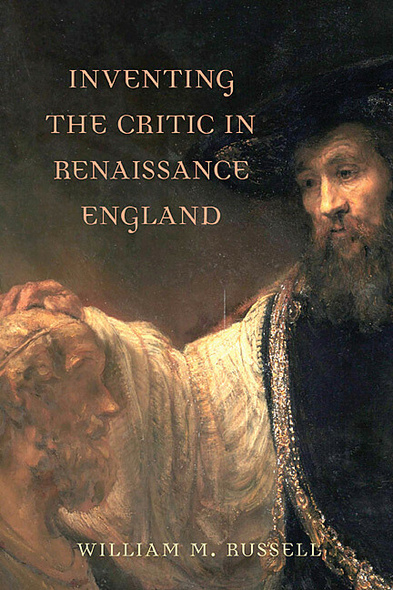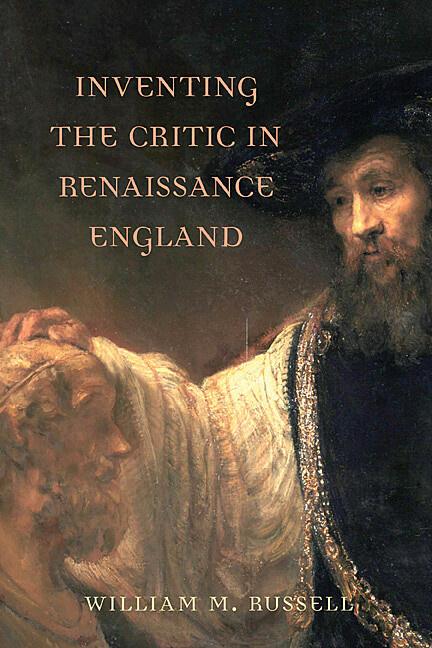
264 pages, 6 x 9
Paperback
Release Date:21 Sep 2020
ISBN:9781644531914
Hardcover
Release Date:21 Sep 2020
ISBN:9781644531907
The turn of the seventeenth century was an important moment in the history of English criticism. In a series of pioneering works of rhetoric and poetics, writers such as Philip Sidney, George Puttenham, and Ben Jonson laid the foundations of critical discourse in English, and the English word “critic” began, for the first time, to suggest expertise in literary judgment. Yet the conspicuously ambivalent attitude of these critics toward criticism—and the persistent fear that they would be misunderstood, marginalized, scapegoated, or otherwise “branded with the dignity of a critic”—suggests that the position of the critic in this period was uncertain. In Inventing the Critic in Renaissance England, William Russell reveals that the critics of the English Renaissance did not passively absorb their practice from Continental and classical sources but actively invented it in response to a confluence of social and intellectual factors.
Published by University of Delaware Press. Distributed worldwide by Rutgers University Press.
Published by University of Delaware Press. Distributed worldwide by Rutgers University Press.
Inventing the Critic in Renaissance England is an important account of the first significant period of literary criticism in the English language, and any subsequent account of the origins of English criticism will need to take account of it. One bonus of this account of early English criticism is its familiarity with classical as well as Continental criticism. Recent generations of Renaissance scholars working in English have lost some of the contact with these important intertexts that were once taken for granted as keystones for the origins of English criticism. Russell’s book helps to redress this lacuna of scholarship without, however, getting lost in erudition. That is, he does not simply return to the history of ideas. He is interested in the intersection between the history of ideas and the scene of critical judgment in all of its messiness and conflict.
William M. Russell is Associate Professor of English at the College of Charleston.
Acknowledgments
Introduction: "Branded with the Dignity of a Critic"
1. Gosson, Sidney, and the Experience of the Critic
2. Harvey, Nashe, and the Comedy of Criticism
3. Ben Jonson and the Consociative Critic
4. Puttenham, Carew, and the Closed Critic
Coda: "Yet Thus Let Me Say"
Notes
Bibliography
Index
Introduction: "Branded with the Dignity of a Critic"
1. Gosson, Sidney, and the Experience of the Critic
2. Harvey, Nashe, and the Comedy of Criticism
3. Ben Jonson and the Consociative Critic
4. Puttenham, Carew, and the Closed Critic
Coda: "Yet Thus Let Me Say"
Notes
Bibliography
Index




